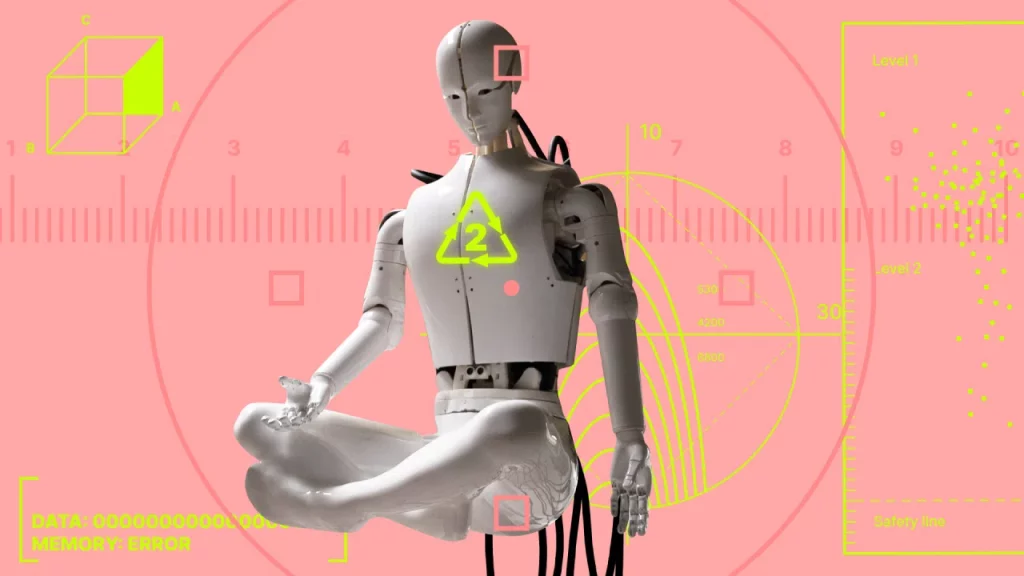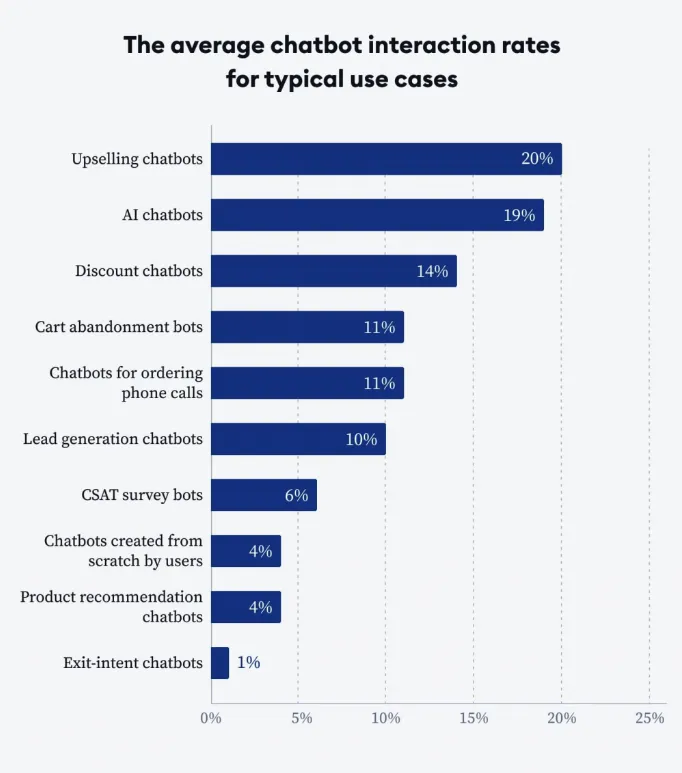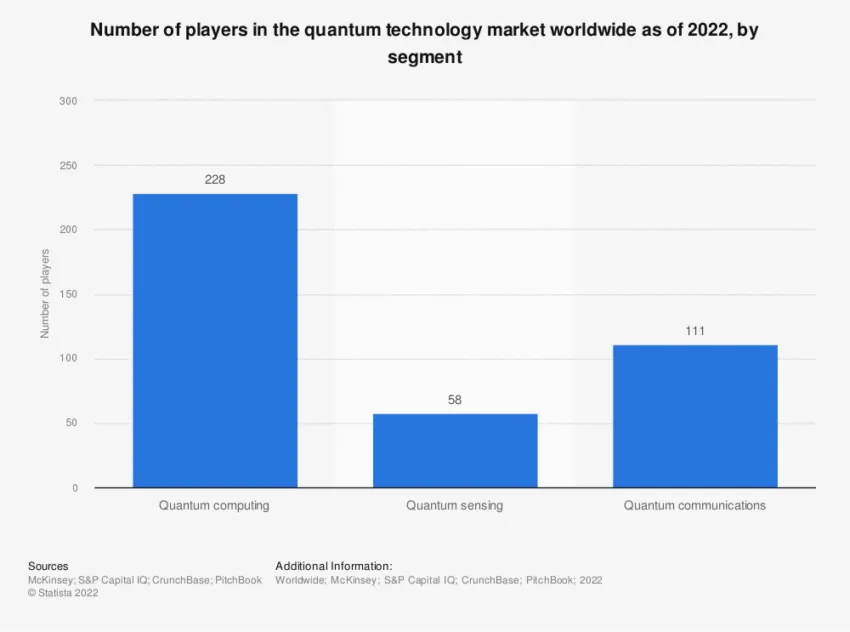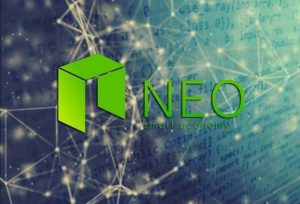Quantum Computing Will Destroy AI Chatbots like ChatGPT

[ad_1]
Artificial intelligence (AI) has become commonplace, and quantum computing is set to alter the landscape radically. The potential of quantum computers to process vast amounts of data at unprecedented speeds could render existing AI chatbots, such as ChatGPT, obsolete.
The intricacies of quantum computing intertwine with understanding the evolution of artificial intelligence. This journey reveals the convergence of two transformative technologies, uncovers challenges, opens opportunities, and underscores the vital role of safeguarding innovations through patent law.
The Current AI Landscape and the Rise of Chatbots
Artificial intelligence has surged forward in recent years, developing sophisticated AI chatbots like OpenAI’s ChatGPT.
These AI systems have been trained on enormous datasets, and their language generation capabilities have been leveraged to create everything from entertaining chatbots to advanced business solutions. These AI models, including the latest GPT-4, are capable of producing human-like text that can engage, entertain, and even educate users.
AI chatbots like ChatGPT have found a wide variety of applications, from providing customer service to acting as personal assistants. They are also increasingly being used to generate content, a trend that has been capitalized on by entrepreneurs and businesses.

As these AI chatbots continue to improve, they have the potential to eclipse humans in terms of general knowledge and simple reasoning. Consequently, leading some to question their potential impact on industries, jobs, and even society.
The Limitations and Risks of Current AI Chatbots
Despite their sophistication and versatility, AI chatbots have inherent limitations. Their responses are based on patterns they have learned from the data they were trained on rather than genuine understanding or consciousness.
This means that they can be “tricked” into giving incorrect or misleading information and cannot distinguish between true and false statements. Furthermore, they can inadvertently propagate falsehoods or misinformation present in their training data, leading to potential misunderstandings or miscommunication.
Prominent figures like theoretical physicist Michio Kaku and artificial intelligence pioneer Geoffrey Hinton have voiced concerns about these AI systems’ potential dangers and ethical implications.
Kaku compared chatbots to teenagers who plagiarize, indicating that they can produce information without truly understanding or verifying it.
“Even though there is a good aspect to all these software programs, the downside is that you can fabricate, because it can’t tell the difference between what is true and false. They are just instructed to cobble together existing paragraphs, splice them together, polish it up and spit it out. But is it correct? It doesn’t care, and it doesn’t know,” said Kaku.
Meanwhile, Dr. Hinton, often called “the Godfather of AI,” warned of AI’s “existential risk” and highlighted the potential for misuse by corrupt leaders or malicious actors.
“It is hard to see how you can prevent the bad actors from using it for bad things,” affirmed Hinton.
The Emergence of Quantum Computing
Quantum computing, a revolutionary technology that leverages the principles of quantum physics, holds the potential to alter the landscape of AI and computing in general drastically.
Quantum computers use quantum bits or “qubits,” which can represent multiple states simultaneously due to the phenomenon of superposition. This allows quantum computers to process vast amounts of information in parallel, potentially far outpacing traditional binary computers.
Moreover, qubits can be entangled, a unique quantum property that allows them to instantaneously affect each other regardless of the distance between them, further enhancing computational efficiency.
Quantum interference, another quantum phenomenon, can guide a quantum system toward the optimal solution by manipulating probability amplitudes. Together, these capabilities could help quantum computers tackle complex problems that are currently insurmountable for classical computers.
The Impact of Quantum Computing on AI and Chatbots
The introduction of quantum computing into the field of AI could have transformative implications.
Quantum computers’ massive computational power could expedite the training of machine learning models and improve the efficiency of natural language processing algorithms. They could also act as powerful fact-checkers, potentially mitigating some of the issues associated with AI chatbots like ChatGPT.
With their exponential computational speed, quantum computers could sift through vast amounts of data. The goal would be to verify the accuracy of the information, something that AI chatbots currently can’t do.
Kaku has suggested that quantum computers could act as a “check” for AI software. These could remove “garbage” or false information from articles or chatbot responses.
However, the integration of quantum computing with AI also carries potential risks. The most notable of these is the threat to data security.
Quantum computers are theoretically capable of breaking current encryption methods. This could potentially jeopardize the security of encrypted data, communications, and transactions across various industries.
Protecting Innovations in Quantum Computing
With the looming potential of quantum computing, it is critical to safeguard this transformative technology. Patents play an instrumental role in this regard. They help protect the intellectual property rights of inventors and promote innovation by providing exclusive rights for a certain period.
While the United States and China are leading in quantum computing patents, “other countries are trying to do similar things to become leaders,” concluded Konstantinos Karagiannis, director of quantum computing at Protiviti.

For instance, Japan’s Toshiba has developed a quantum key distribution (QKD) system. It could potentially provide a defense against the threat of quantum computers to current encryption systems.
Quantum computing technologies like QKD systems are an area of significant interest. Yet, they are not without their challenges. Interoperability issues, high costs, and the need for specialized skills to operate and maintain these systems are among the hurdles to their widespread adoption.
“Quantum computers are pretty big, expensive, they need a lot of people to maintain them. They’re nothing you’re going to have in your basement. So the real problem with accessing them in general becomes the digital divide – people who can’t access the internet won’t be able to access these machines. A country that’s undeveloped technologically, they’re not going to have supercomputing centers,” said Karagiannis.
Quantum Computing: The Future of AI
The advent of quantum computing could precipitate the “demise” of current AI chatbots like ChatGPT. The raw computational power of quantum computers could enable a new generation of AI systems that are far superior in terms of processing speed, efficiency, and the ability to verify information.
These next-generation AI systems could potentially replace current chatbots. Consequently, offering a level of performance and accuracy that far surpasses what is achievable with existing technology. They could handle more complex tasks, understand the context better, and provide more accurate and reliable responses.
It’s important to remember that such advances will take time, given the nascent state of quantum computing technology. Still, Kaku maintains, “given the rate of progress, we expect things to get better quite fast.”
The Path Forward: Quantum Computing and AI
While quantum computing holds promise, it’s clear that there are substantial challenges to overcome. These include technical and infrastructural hurdles and ethical and societal considerations.
As quantum computing and AI continue to evolve, fostering a dialogue encompassing all these aspects is crucial. Scientists, policymakers, and ethicists must engage with the broader public.
The integration of quantum computing and AI is poised to bring about significant changes. It could potentially transform various sectors and impact everyday lives.
While it is still early days, the trajectory suggests a future where quantum-powered AI systems may outperform and replace today’s AI chatbots, marking a new era in artificial intelligence.
Disclaimer
Following the Trust Project guidelines, this feature article presents opinions and perspectives from industry experts or individuals. BeInCrypto is dedicated to transparent reporting, but the views expressed in this article do not necessarily reflect those of BeInCrypto or its staff. Readers should verify information independently and consult with a professional before making decisions based on this content.
[ad_2]
Source link









